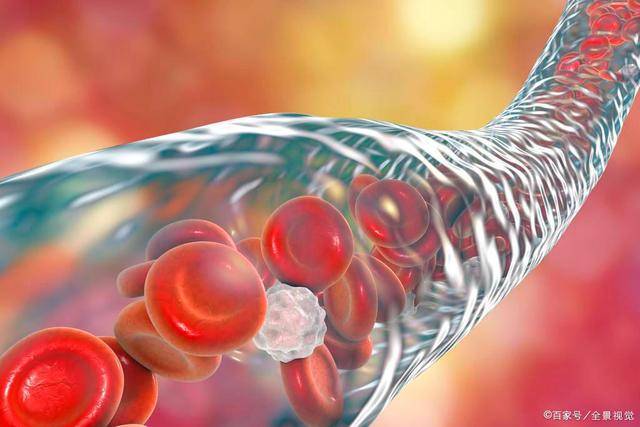Blood vessels are important channels for blood circulation in the body, providing nutrients to various organs to maintain normal functions and excreting waste generated by metabolism.
Blood vessels are like pipes in a house; once there is a blockage, it can affect the entire water circulation in the house, potentially leading to increased pressure and even bursting—similar to how blood vessels work in the human body.
Since blood vessels are hidden within our bodies, we may not be aware of blockages unless symptoms occur. If you experience symptoms of blockages such as leg pain, seek medical attention promptly.
The legs can tell you if your blood vessels are blocked or not! If your legs do not show any abnormal signs, it indicates that the blood vessels are clear.
If you experience numbness in your legs, especially on one side, it could signal a blood clot blocking circulation. Similarly, frequent leg cramps, especially if not relieved by taking calcium supplements, may indicate a blockage, warranting medical evaluation.
Leg pain, accompanied by decreased skin temperature, swelling, or discoloration, may suggest a mild blockage in the blood vessels. Prompt medical evaluation is crucial to prevent clot formation.
Intermittent claudication, where walking long distances causes leg discomfort, could indicate a lower limb blockage, requiring medical assessment.
Feeling cold in your legs could be a sign of reduced blood flow, suggesting a blockage that needs medical attention promptly.
Three types of food that accelerate clot formation!
High-salt foods, which include pickled foods, various sauces, processed foods, sausages, and seasonings, can lead to kidney damage and increase the risk of high blood pressure and artery damage, making them known as clot accelerators.
Consuming high-salt foods regularly may also harm the gastrointestinal mucosa, increasing the risk of gastritis and ulcers, and reducing stomach function.
Animal organs and fatty meats, such as pork kidney, lamb kidney, pig liver, chicken liver, and fatty meats, are high in cholesterol, impacting lipid metabolism and potentially causing atherosclerosis, fatty liver, and other complications.
Fatty meats rich in saturated fats can elevate blood lipids, significantly increasing the risk of cardiovascular diseases and cancer with prolonged consumption.
Alcoholic beverages, including beer, spirits, wine, and other alcoholic drinks, activate fat enzymes in the body, increasing fat release into the bloodstream and potentially leading to high blood lipids.
Alcohol consumption can hinder the clearance of low-density lipoprotein, increasing the risk of high blood lipids. Heavy drinking can reduce the synthesis of high-density lipoprotein, raising triglycerides and the risk of artery blockage.
Regular consumption of four “thrombolytic kings” helps maintain clear blood vessels.
Mushrooms are a nutritious food rich in polysaccharides, vitamins, proteins, and other nutrients, reducing cholesterol and blood pressure, preventing arteriosclerosis, and enhancing immunological defenses, promoting healthy blood vessels and preventing clots.
Hericium erinaceus, also known as monkey head mushroom, contains unsaturated fatty acids that improve blood circulation, lower cholesterol levels, strengthen immune functions, digestive abilities, and alleviate nervous exhaustion, making it an ideal food for cardiovascular health.
Deep-sea fish, rich in unsaturated fatty acids, cleanses blood vessels and prevents clots. Omega-3 fatty acids, when broken down into EPA in the body, are known as “blood scavengers,” promoting fat metabolism, reducing LDL cholesterol levels, increasing HDL cholesterol, and preventing platelet aggregation. Consuming deep-sea fish 2-3 times a week supplies essential unsaturated fatty acids.
Apples, known as “cholesterol-lowering fruits,” contain pectin, a soluble dietary fiber that binds with bile acids, aiding in the excretion of excess cholesterol and triglycerides. Pectin helps lower cholesterol levels by enhancing the effects of vitamin C and fructose, reducing cholesterol and triglyceride levels.


